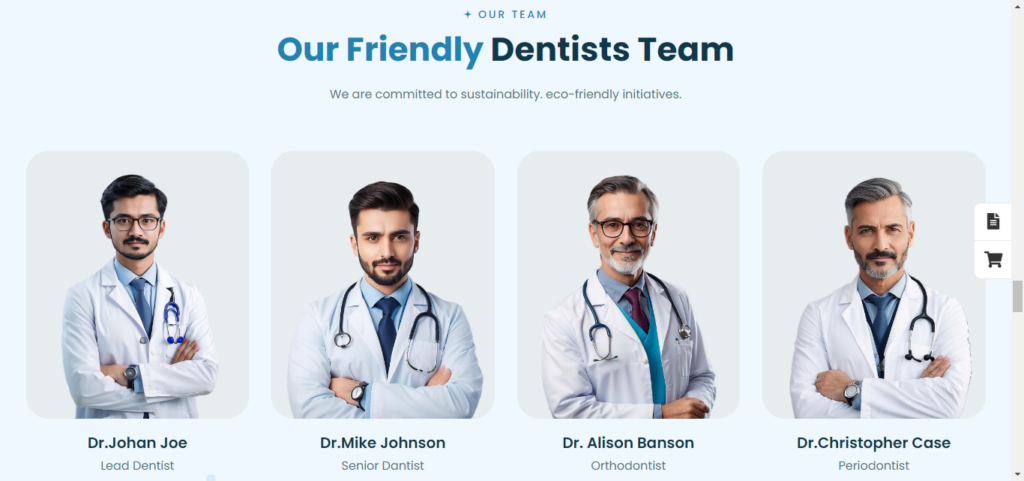
Introduction
In today’s digital age, a professional website is no longer optional for dental practices. It’s a crucial tool that can significantly impact your clinic’s growth, patient acquisition, and reputation. However, not all websites are created equal. Working with a specialized dental practice web design agency can provide unique benefits tailored specifically to dental needs, helping your practice stand out from the competition. This article will explore why choosing a dental-specific web design agency is beneficial, the must-have features for a dental website, and how SEO, patient-friendly features, and local optimizations are critical for online success.
The Importance of a Website for Dental Practices
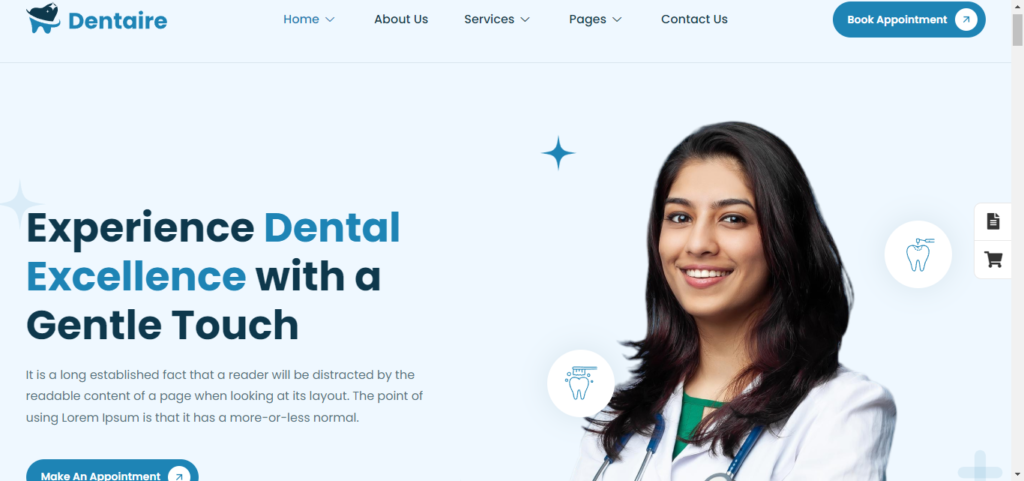
A professional website acts as the first impression for potential patients. For a dental practice, this digital front door should be welcoming, informative, and easy to navigate. A well-designed website will:
- Build Trust and Credibility: A professional website helps establish trust by showcasing your experience, team, and services, allowing potential patients to feel confident in choosing your practice.
- Improve Patient Experience: Features like online scheduling, educational content, and easy-to-access contact information create a positive user experience, making patients more likely to choose and return to your clinic.
- Expand Reach and Visibility: A website with effective SEO can attract more patients by ranking high in search results, specifically for local queries like “dentist near me” or “dental clinic [location].”
Since patient expectations and industry standards evolve, a specialized dental practice web design agency is often the best choice to ensure your site stays relevant and effective.
Why Choose a Specialized Dental Practice Web Design Agency?

Partnering with a specialized dental web design agency comes with unique advantages that make them stand out from general design firms:
- Industry-Specific Knowledge: These agencies understand the dental field and know the key elements to highlight, like specialized services, patient reviews, and insurance information. They also stay up-to-date with compliance standards, including HIPAA for patient data security.
- Focus on Patient-Centric Design: Dental web design agencies prioritize elements that matter most to dental patients, such as a user-friendly appointment scheduling system, patient testimonials, and service descriptions.
- Local SEO Expertise: They understand how to boost your clinic’s visibility in local searches, attracting more patients within your service area.
Working with a dental-specific agency allows you to have a website that not only looks good but is also optimized to meet the expectations of dental patients and attract them to your clinic.
Key Features of an Effective Dental Website Design
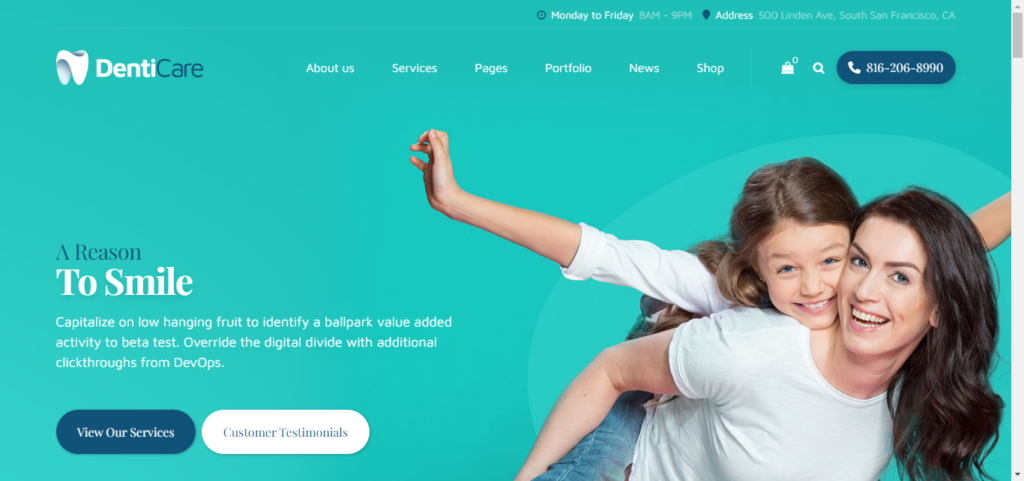
A professional dental website should be more than visually appealing—it should also be functional and optimized to meet patient needs. Here are the essential features to consider:
Responsive Design
Responsive web design is a must. Many patients will access your website on mobile devices, so the site should automatically adapt to various screen sizes. A mobile-friendly site ensures that all users have a positive experience, which can lead to higher engagement and conversion rates.
User-Friendly Navigation
Clear and intuitive navigation makes it easy for patients to find information quickly, whether they’re looking for your services, contact details, or patient testimonials. A straightforward menu and clickable buttons can make your website more user-friendly, helping patients find the information they need without frustration.
SEO Optimization
SEO is crucial for helping your website appear in search engine results, especially for local searches like “dental clinic near me.” Dental web design agencies typically provide SEO services, ensuring your website ranks well for relevant keywords, such as “dental implants,” “family dentistry,” or even “emergency dentist.” By targeting these keywords, you improve your chances of reaching patients actively looking for dental services.
Appointment Booking System
Having an easy-to-use, secure appointment booking feature is essential for a dental website. Patients appreciate the convenience of booking appointments online, and a streamlined system can help reduce front-office workload. Appointment booking tools should allow patients to select services, choose preferred dates and times, and even get appointment reminders to ensure they don’t miss their visits.
Patient Testimonials and Reviews
Incorporating patient testimonials and reviews adds trust and credibility to your website. Positive reviews reassure potential patients that your services are high-quality and patient-centric. A section for testimonials, especially near service descriptions or on a dedicated page, can make a powerful impact on new visitors.
Educational Content
Informative, high-quality content is valuable for SEO and for building trust. Including a blog section where you post about dental health topics, procedure overviews, or answers to frequently asked questions can position your practice as a reliable source of information. Educated patients are more likely to trust your expertise and choose your clinic.
How a Dental Practice Web Design Agency Drives SEO Results
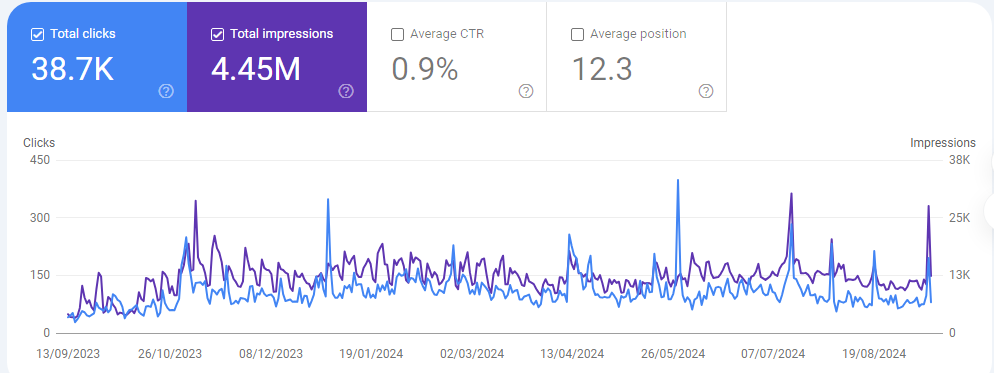
SEO is essential for increasing the online visibility of your dental practice, but it requires specialized knowledge to be effective. Here’s how a dental web design agency can help you achieve better SEO results:
On-Page SEO
An experienced agency will implement on-page SEO best practices, including optimizing titles, meta descriptions, and headers. They’ll use relevant keywords—such as “family dentist,” “dental implants,” or “pediatric dentist”—to help your site rank for specific dental services. Other on-page strategies include:
- Alt text for images: Optimizing images with descriptive text so they’re accessible and search engine-friendly.
- Internal linking: Creating logical pathways between different parts of the website to improve navigation and SEO.
Technical SEO
Technical SEO involves optimizing the backend of your website to ensure it’s easily crawlable and indexed by search engines. This includes site speed optimization, ensuring the website is secure (HTTPS), and using structured data markup to enhance search results. A dental web design agency understands how technical SEO affects rankings and can ensure your site meets these standards.
Local SEO
Local SEO focuses on attracting patients in your geographic area. Dental-specific agencies can help you create and optimize your Google Business Profile, add your practice to local directories, and ensure consistency across online listings. By optimizing for location-based keywords, they’ll help your practice rank for searches like “dental practice [city]” or “emergency dentist [location].”
How a Custom Web Design Boosts Patient Conversions
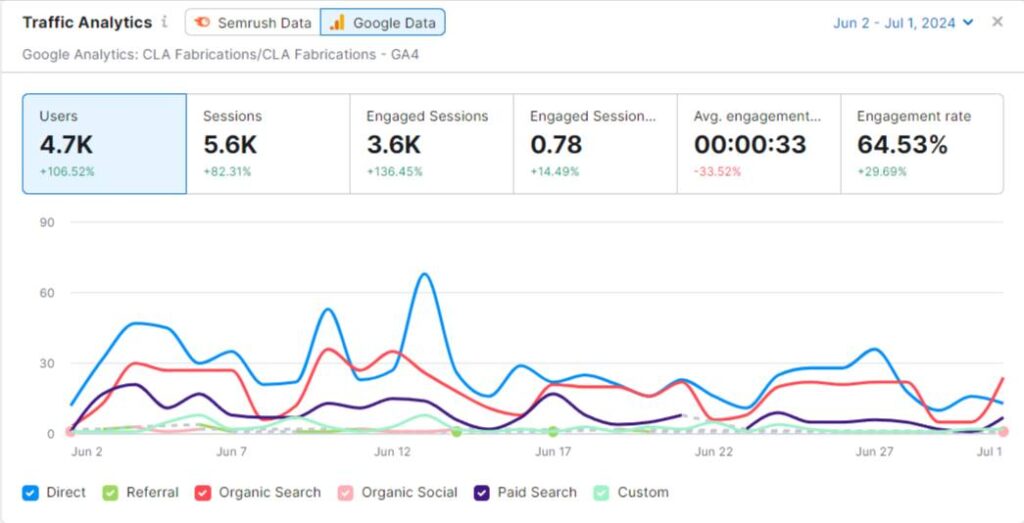
Custom web design goes beyond aesthetics to enhance patient acquisition and conversion rates. Here’s how:
Engaging Visuals and Branding
Your website’s visual elements should reflect your practice’s brand and appeal to your target patients. Custom graphics, colors, and branding that align with your clinic’s identity can make a memorable impression and foster patient trust.
Calls-to-Action (CTAs)
Clear and strategically placed CTAs encourage patients to take specific actions, like scheduling an appointment, calling your office, or signing up for a newsletter. Effective CTAs should stand out visually and use persuasive language to guide patients through the decision-making process.
Optimized Contact Forms
Contact forms should be simple, collecting only essential information to reduce patient hesitancy. Dental web design agencies understand the balance between gathering patient details and respecting privacy, so they can create forms that are both user-friendly and HIPAA-compliant.
The Development Process with a Dental Practice Web Design Agency

Working with a dental web design agency usually involves a detailed process to ensure your website aligns with your goals. Here’s what to expect:
Consultation and Planning: An initial consultation allows the agency to understand your needs, target audience, and desired functionality. They may discuss branding, design preferences, and features important for your clinic.
Design and Development: The design team will create wireframes, mockups, and eventually a full website layout. After your approval, they’ll build the website with attention to user experience, SEO, and compliance requirements.
Testing and Launch: Before launch, the website goes through thorough testing to ensure it functions smoothly across all devices and meets SEO standards. Once tested, the site is launched for public access.
Ongoing Support and Maintenance: Many agencies provide ongoing support, helping with updates, SEO maintenance, and security checks. This ensures your website remains functional, relevant, and safe for users.
FAQs about Dental Practice Web Design Agencies
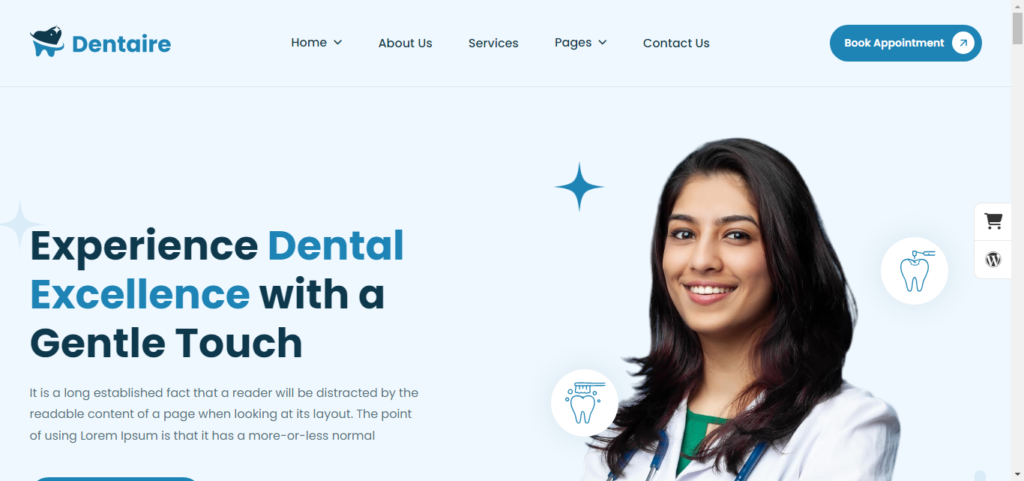
Why should I hire a dental-specific web design agency?
Dental-specific agencies understand the unique needs of dental practices, from compliance to patient-focused design, making them a more efficient and effective choice.
How long does it take to design a dental practice website?
On average, it takes 4-8 weeks, depending on the complexity of the design, content needs, and any custom features.
What SEO strategies work best for dental websites?
Local SEO, on-page optimization, content marketing, and backlinking are particularly effective for dental practices.
How much does a dental practice website typically cost?
Costs vary widely, from $2,000 to $10,000, based on customization and the agency’s expertise.
Can the agency help me with patient appointment scheduling?
Yes, most dental agencies offer appointment booking integrations to streamline scheduling and improve patient convenience.How often should my website content be updated?
Updating blog posts and adding new content monthly is ideal for SEO and patient engagement.
What’s the difference between custom and template-based dental websites?
Custom websites offer tailored functionality, branding, and design, while template-based sites are quicker but lack customization.
How can I measure my website’s success in attracting new patients?
Track metrics like organic traffic, lead generation, form submissions, and appointment bookings to measure success.
Is it necessary to blog or produce regular content for SEO?
Yes, regular content boosts SEO by keeping your site relevant and informative, which also appeals to patients.
